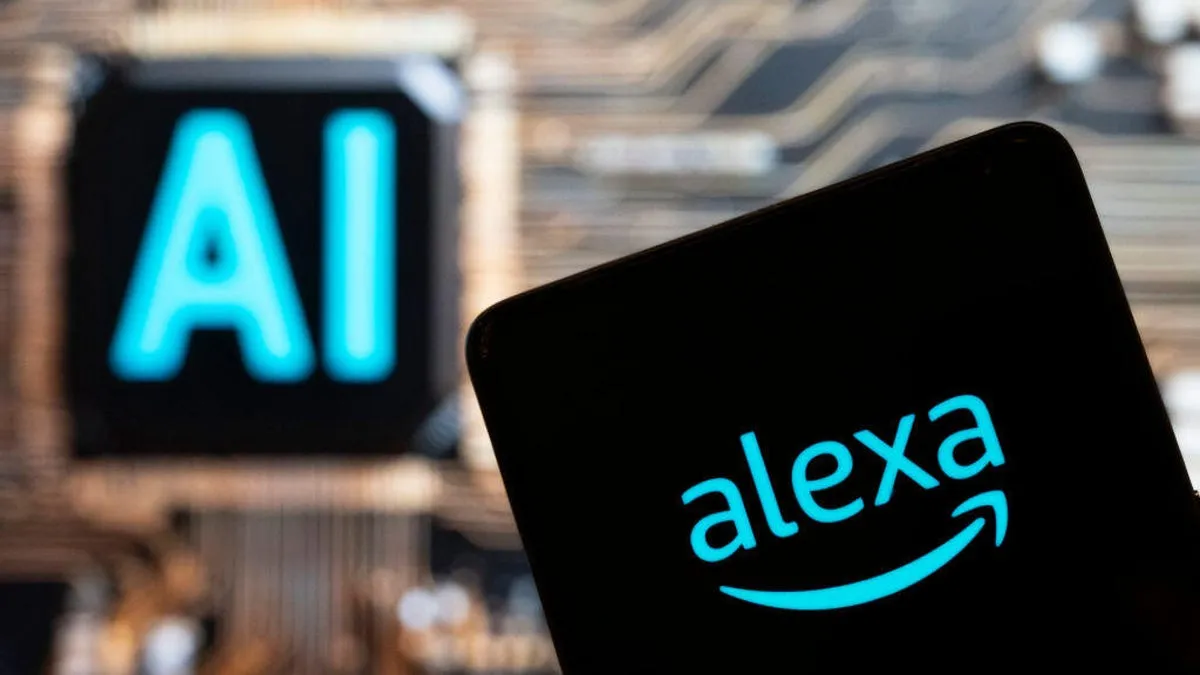
Tomorrow marks a significant milestone for Amazon's Alexa as the company unveils a long-awaited upgrade at a major event. This anticipated update is expected to introduce generative AI capabilities to the voice assistant, potentially transforming the way Alexa interacts with users by enabling it to understand and engage in natural language conversations. As noted by consumer tech writer Samantha Kelly, if these enhancements are announced, they would represent Alexa's most substantial evolution since its initial release in 2014.
A recent survey conducted by CNET highlights ongoing trust issues consumers face with increasingly intelligent smart home devices. The survey, which involved over 2,000 US adults, delves into the sentiments surrounding voice assistants in devices like the Amazon Echo.
According to the survey, half of US adults (50%) have utilized a home voice assistant this year, with Amazon Alexa leading the pack as the most popular choice among US adults (27%). The study also reveals that nearly three-quarters (73%) of voice assistant users harbor privacy concerns regarding AI integrations, and over half (56%) are unwilling to pay an additional subscription fee for enhanced AI features.
Trust in AI features varies by brand, with Amazon Alexa being the most trusted (27%) among all US respondents. Gen Z (61%) and millennials (56%) are notably more trusting of AI in voice assistants compared to other age groups.
Among those who have used a voice assistant this year, the most frequent use case is asking quick questions (64%), followed by utilizing speakers for music and entertainment (49%), setting timers (42%), setting reminders (36%), and making calls (29%).
As Amazon prepares for its event, there is speculation about how Alexa will address consumer resistance to AI and smart home technology. Potential announcements could include new versions of Alexa Emergency Assist, innovative approaches to Alexa Skills, expanded smart home integrations, and possibly new Amazon Echo devices. Previous reports indicated that Amazon might consider charging users a subscription fee for these advanced features, a prospect that over half of survey respondents have rejected.
Despite the secrecy surrounding the announcement, the forthcoming event on Feb. 26 will shed light on Amazon's plans, coinciding with Apple's anticipated entry into the smart home arena later this year.
Amazon leads the charge with Alexa, but the competition is fierce. While 27% of US adults have activated Alexa since January 1, Apple's Siri is not far behind at 21%, with Google Assistant/Gemini trailing at 18%. Gen Z adults show a slight preference for Siri, suggesting Alexa may need to enhance its appeal to younger demographics.
Surveyed users primarily rely on voice assistants for simple tasks, such as asking quick questions, playing music, and setting timers. Only 23% have used voice assistants for smart home commands, a statistic Amazon aims to improve. Similar to Google's Gemini, Amazon is expected to emphasize more complex use cases, encouraging users to engage in longer conversations and complete intricate tasks.
Overall, consumers remain uncertain about the implications of AI. When asked about their willingness to use voice assistants more frequently with new AI features, 34% expressed ambivalence. Additionally, only 34% of active users showed interest in using voice assistants more if they received intelligence upgrades.
Positively for Amazon, users trust Alexa and Amazon the most regarding AI (27%), followed closely by Apple Siri (24%) and Google Assistant (23%). However, 50% of respondents expressed a lack of trust in home voice assistants, and a combined 73% were concerned about privacy risks associated with AI features.
These challenges present significant hurdles for Amazon's upcoming event. Notably, only 23% of adults indicated a willingness to pay for more AI features in voice assistants, while 56% opposed any additional fees. This poses a challenge for introducing an Alexa AI subscription unless it can demonstrate substantial value beyond integration with Amazon Prime.
CNET will be on-site for Amazon's announcement to gain insights into the company's strategy and hear from Panos Panay, head of Amazon's Devices and Services team. As Alexa's AI features become available, further tests and results will follow.
Until then, there is keen interest in how Amazon plans to differentiate Alexa's AI upgrades from Google's Gemini and Apple's forthcoming Siri enhancements, and whether Alexa will become a significant revenue driver. Stay tuned for more updates.
All figures, unless otherwise stated, are from YouGov Plc. The total sample size was 2,376 adults, of which 1,308 have used a home voice assistant since January 1, 2025. Fieldwork was conducted from February 18 to 20, 2025. The survey was carried out online, with figures weighted to be representative of all US adults aged 18 and over.